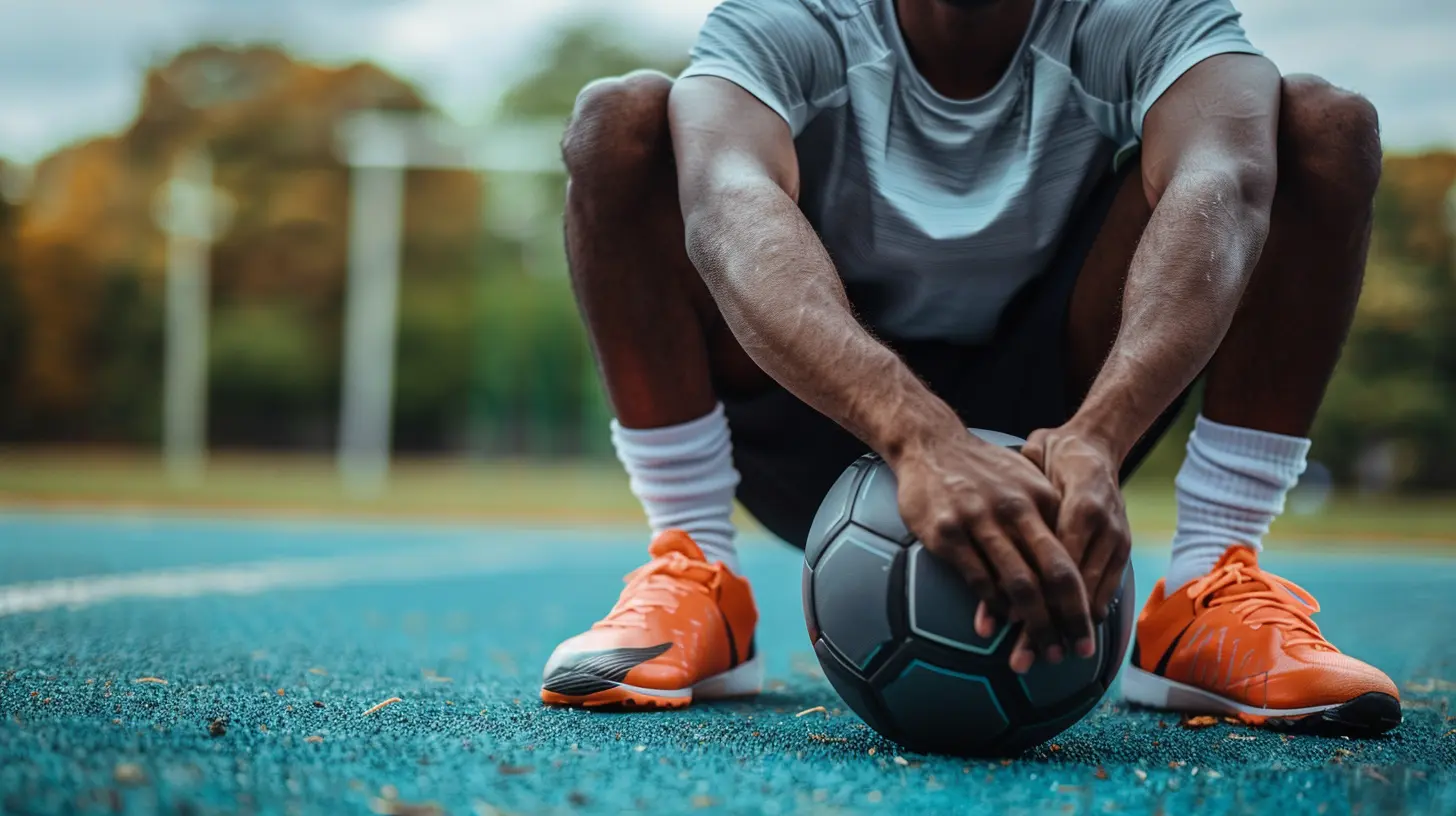The Connection Between Mental Health and Athletic Performance
2 October 2025
When we think of athletes, we often picture them as physically strong, resilient, and capable of pushing their bodies to the limit. But what about their minds? While physical training is a huge part of any athlete’s success, mental health plays just as big a role – if not bigger – in how they perform on the field, court, or track.
In recent years, there's been a growing recognition of the connection between mental health and athletic performance. This isn’t just a soft topic of discussion; it’s a crucial element that can make or break an athlete’s career. Let's dive in and explore how mental health impacts athletic performance, the factors that contribute to mental health challenges for athletes, and how mental well-being can be improved for better performance.

The Importance of Mental Health in Sports
Why Mental Health Matters
Imagine this: you’ve spent months training for a major competition. You’ve hit the gym, followed your diet plan, and perfected your technique. But on the day of the event, your mind is clouded with anxiety, self-doubt, and stress. Despite all your physical preparation, if your mental state isn’t in check, your performance will suffer.This scenario is more common than you might think. Athletes, just like anyone else, experience stress, anxiety, depression, and other mental health challenges. The pressure to perform, fear of failure, and the constant demand for perfection can take a toll on their mental well-being. When an athlete's mental health is compromised, it can lead to poor performance, burnout, or even withdrawal from the sport altogether.
The Mind-Body Connection
The mind and body are deeply intertwined. Mental health affects how athletes process information, make decisions, and even how they recover from injuries. A clear, focused mind can elevate an athlete’s game, while mental health struggles can slow them down, both physically and mentally.Take, for example, a professional basketball player preparing for a critical free throw. Their ability to stay calm, composed, and block out distractions is just as important as their physical ability to shoot the ball. If they’re battling anxiety or self-doubt, it could lead to a missed shot – which could mean the difference between winning and losing.

Factors Affecting Athletes’ Mental Health
Pressure to Succeed
For many athletes, the pressure to perform at their best is relentless. Whether it’s the expectations of fans, coaches, teammates, or even themselves, this pressure can become overwhelming. Athletes often feel like they must constantly prove their worth, and failure is not an option. This can lead to anxiety, stress, and, in some cases, depression.Think about it: if you knew that the entire world was watching your every move, and one mistake could define your career, how would you feel? That’s the reality for many elite athletes. The constant pressure can become mentally exhausting.
Injuries and Mental Health
Injuries are part of sports. Whether it’s a sprained ankle or a torn ligament, every athlete will face injury at some point. While physical injuries can usually be treated with rest, surgery, or rehabilitation, the mental toll of an injury is often overlooked.For an athlete, being sidelined due to an injury can lead to feelings of frustration, isolation, and even depression. They may worry about whether they’ll ever return to their previous level of performance or if their injury will end their career prematurely. The fear of reinjury can also affect their confidence once they’re back in the game.
The Role of Social Media
Social media has become a significant part of athletes' lives, but it’s also a double-edged sword. On one hand, it allows athletes to connect with fans and share their personal stories. On the other hand, it exposes them to constant scrutiny, criticism, and negative comments.Toxic online behavior, such as cyberbullying or harsh criticism, can damage an athlete’s self-esteem and mental well-being. Athletes are human, after all, and the weight of public opinion can be crushing. The pressure to maintain a certain image or keep up with the expectations of fans can contribute to anxiety, stress, and even body image concerns.
Balancing Sports and Personal Life
Athletes often struggle to balance the demands of their sport with their personal lives. Training, traveling, and competing can consume most of their time, leaving little room for family, friends, or even personal interests. This imbalance can lead to feelings of isolation, loneliness, and burnout.Additionally, athletes may feel like they have to sacrifice their personal lives to succeed in their sport. This can create internal conflict and resentment, which in turn affects their mental health and performance.

How Mental Health Affects Performance
Focus and Concentration
Athletes need to be laser-focused during competition. Whether it's blocking out distractions, staying in the moment, or making split-second decisions, mental clarity is essential. However, mental health challenges, such as anxiety or depression, can make it difficult for athletes to stay focused. Their minds may be preoccupied with negative thoughts or external pressures, which can lead to mistakes or poor performance.Motivation and Drive
Mental health issues can also sap an athlete’s motivation. Depression, for instance, can leave athletes feeling unmotivated to train, compete, or even get out of bed. Without the mental drive to push through tough workouts or challenging moments in a game, their performance will inevitably suffer.Confidence and Self-Belief
Confidence is key in sports. Athletes need to believe in their abilities to succeed. However, mental health struggles can erode an athlete’s self-esteem and self-belief. A lack of confidence can lead to hesitation, indecisiveness, and ultimately, poor performance.Take Usain Bolt, for example. Known for his incredible confidence, Bolt’s belief in himself allowed him to dominate on the track. If he had doubted his abilities, he may not have achieved the same level of success. Mental health issues, such as anxiety or depression, can chip away at an athlete’s confidence, making it harder for them to perform at their best.

Strategies for Improving Mental Health and Performance
Mindfulness and Meditation
Mindfulness practices, such as meditation, can help athletes stay calm, focused, and present. By practicing mindfulness, athletes can learn to quiet the mental chatter, reduce anxiety, and improve their concentration during competition.Meditation doesn’t have to be complicated. Even just a few minutes of deep breathing or guided meditation each day can make a significant difference in an athlete’s mental state. It’s about training the mind, just like you’d train the body.
Mental Health Support
Seeking professional help is crucial for athletes facing mental health challenges. Sports psychologists, therapists, and counselors can provide athletes with the tools and strategies they need to manage stress, anxiety, depression, and other mental health issues.There’s still some stigma around mental health in sports, but that’s slowly changing. High-profile athletes like Michael Phelps and Naomi Osaka have openly discussed their struggles with mental health, helping to break down barriers and encourage others to seek help.
Positive Self-Talk
The way athletes talk to themselves matters. Positive self-talk can boost confidence, reduce anxiety, and improve performance. On the flip side, negative self-talk – thoughts like "I’m not good enough" or "I’m going to fail" – can sabotage an athlete’s performance.Encouraging athletes to replace negative thoughts with positive affirmations can help them build resilience and maintain a healthy mindset, even under pressure.
Work-Life Balance
It’s essential for athletes to maintain a balance between their sport and personal lives. Taking time to relax, socialize, and pursue other interests can prevent burnout and improve mental well-being. Athletes should be encouraged to take breaks from their sport, spend time with loved ones, and engage in activities that bring them joy.The Future of Mental Health in Sports
The conversation around mental health in sports is far from over. In fact, it's just beginning. As more athletes come forward to share their experiences, there's hope that the stigma surrounding mental health will continue to fade. Coaches, teams, and organizations are starting to prioritize mental health just as much as physical health, recognizing that both are essential for peak performance.In the future, we can expect to see more resources and support systems in place for athletes, from mental health professionals on staff to mental wellness programs designed to help athletes cope with the pressures of their sport.
The connection between mental health and athletic performance is undeniable. Just as athletes train their bodies to be in peak physical condition, they must also train their minds to stay mentally strong. After all, the mind is the most powerful tool an athlete has.
all images in this post were generated using AI tools
Category:
Sports PsychologyAuthor:

Preston Wilkins
Discussion
rate this article
1 comments
Wade Larsen
Who knew that bouncing back mentally could be as crucial as scoring goals? Mental health and athletic performance go together like peanut butter and jelly—both delicious and essential for a winning game! Keep those vibes high!
October 12, 2025 at 3:45 AM

Preston Wilkins
Absolutely! Mental health is a key ingredient for athletes—just like peanut butter and jelly, it enhances performance and well-being. Thanks for highlighting this vital connection!


